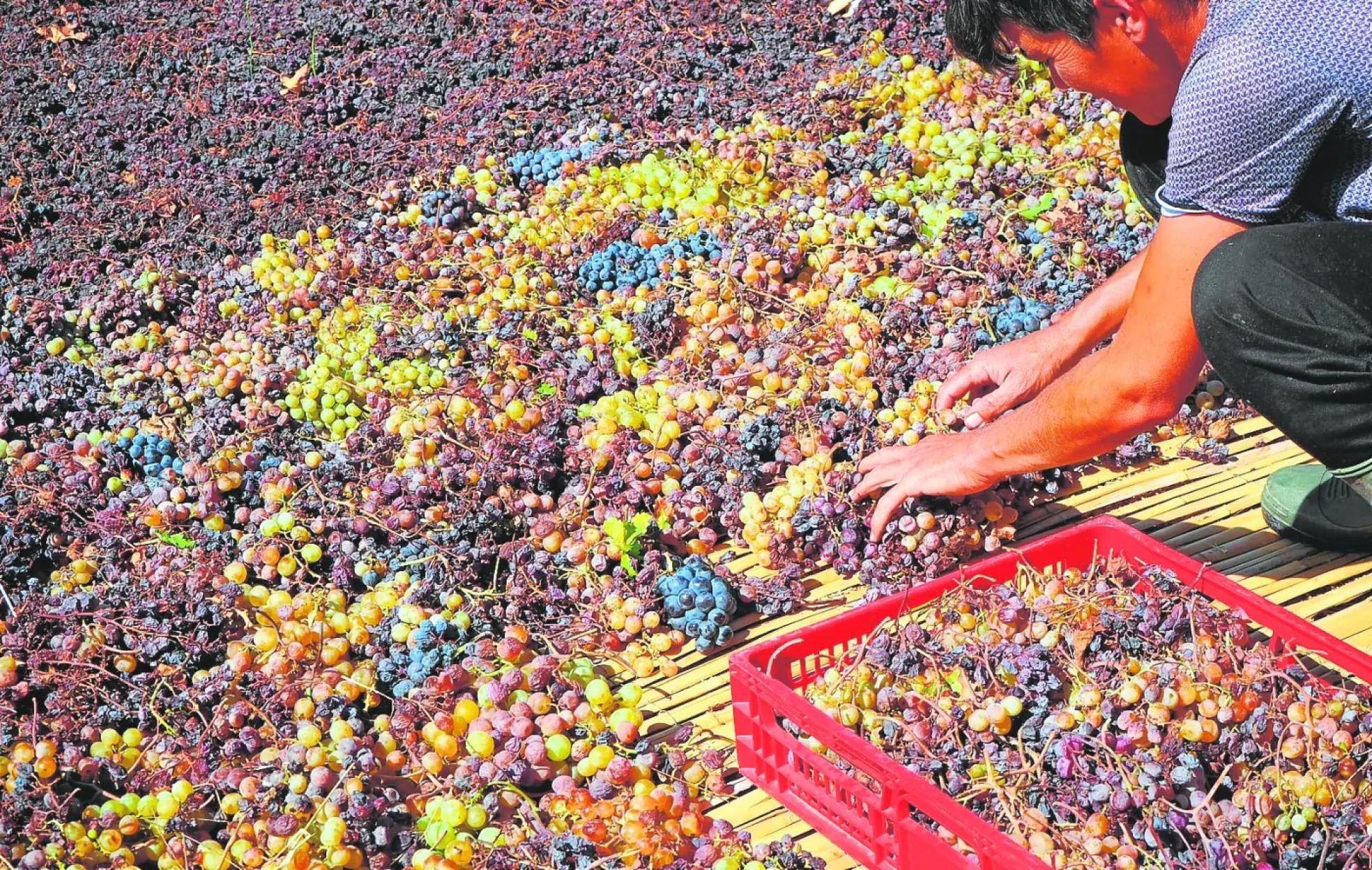Agrotourism could be the ideal way to save Malaga's famous raisins
Moscatel. ·
With a lower production and a notable fall in demand in recent years, this local product may yet regain its rightful place in the world after being classified as a Globally Important Agricultural Heritage SystemJAVIER ALMELLONES
Friday, 14 October 2022, 12:45
They say the muscat grape from Alexandria is the very best variety, because it can be eaten as a fruit, turned into wine or dried as raisins. For centuries the La Axarquía region of southern Spain has been famous precisely because of this grape, which is also known as moscatel, and its three-way advantages.
Raisins, like wine, even have their own official designation of origin as long as they comply with all the relevant regulations, and since 2018 they have also been one of the few European products which are classified by the UN as a Globally Important Agricultural Heritage System.
Despite this recognition, times are not good for the moscatel raisins. Demand has been falling at an alarming rate for years. From the 640,000 kilos produced in some years in the 1990s, last year the quantity was barely 177,000 kilos. And this year, although waiting for official figures to corroborate it, it looks as if the figure is down to below 90,000, in other words less than half.
This latest dramatic reduction is due to the drought, which has meant that the moscatel grapes are not big enough to be turned into raisins.
Another factor is the lack of profitability in this product, which is produced by artisan methods and is still in demand in some other countries, especially France.
Many farmers in the villages which produce the most moscatel grapes, such as Moclinejo, El Borge and Almáchar, are not going to be able to hand down their businesses, which use ancient methods to dry out the grapes in the rays of the sun, to younger members of their families.
Around 2,000 families work in this sector in La Axarquía nowadays. Most say that this year they have been unable to take on any temporary staff because there have not been enough grapes, so they have not needed help.
Take Manuel, for example, who owns a winery next to the Camino de la Cornisa, in Macharaviaya but within a stone's throw of Almáchar. Things have been so bad that for a few years now he and others have been considering growing mangos as an alternative.
But then Manuel, along with other producers, has also been open-minded about another option which it is hoped will enable the moscatel grapes to continue to be grown on this rugged terrain.
Unique experiences
It is known as agrotourism and has been developing in the area in recent years thanks to companies such as Oleotrips, Rutaaxar and Enoxperience, who with the support of the local authorities are organising unique experiences based on artisan and exclusive products.
As part of the aim of ensuring that the Malaga moscatels have the place they deserve, the Valsipam project has also been created. The name stands for Valorización de los Sistemas Importantes de Patrimonio Agrícola Mundial, and the idea is to create a network of global agricultural heritage systems in unique and remarkable agricultural areas throughout Europe, to improve the way they are managed and developed.
In the case of the raisins from Malaga, via Valsipam, which is led by the Andalusian Ministry of Agriculture, Farming, Fishing and Sustainable Development, tourists can enjoy a variety of unique experiences relating not only to the production of the product but also biodiversity, the landscapes, agricultural and forestry practices and cultural, ethnographic and anthropological heritage.
Agrotourism, and also experience tourism, may prove to be the answer so that in the forthcoming years the raisins of Malaga return to the place they deserve to hold in Europe in terms of their tradition and their history.



